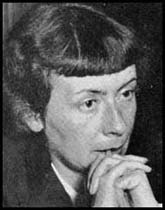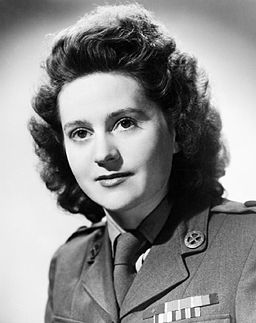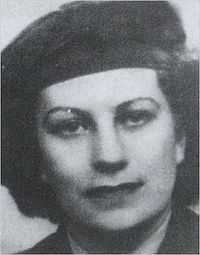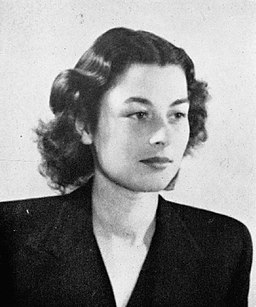
The Mata Hari of World War 2: Mathilde Carré
Mathilde was born on June 30, 1908 to Arséne Narcisse Joseph Belard and Jeanne Belard. “Lily,” as her family called her, pursued a law degree at the Sorbonne, an unusual feat for a woman at the time. There she met Maurice Henri-Claude Carré, a schoolteacher. Maurice hailed from a lower class than the Belards, and Mathilde’s parents did not necessarily approve of the match.
Nevertheless, the two were married on May 19, 1933 and then moved to Algeria, where Mathilde took a job teaching. Six years into their marriage, Mathilde was confronted with two facts about her husband. One was that he was impotent, as revealed by her mother-in-law, due to a childhood bout with illness. The other was that Maurice’s father had died in a mental institution and not during the Great War as he had originally told her.
Mathilde filed for divorce the same month that the war broke out. She left North Africa for Paris, where she joined L’union des Femmes de France, a precursor to the French Red Cross. She trained as a nurse in a surgical hospital outside of Paris. Maurice was sent to Syria. He was killed shortly after their last meeting (as detailed in the novel).
Despite almost fainting the first time she assisted with surgery, Mathilde excelled at being a nurse. She worked long hours, often accompanying doctors to the front to treat wounded soldiers on the battlefield. She was relocated to Toulouse after the Armistice. One night in October 1940, she met a handsome man who introduced himself as Armand. He was really Roman Czerniawksi, a Polish Air Force captain and intelligence officer. He had been captured by the Germans after France surrendered, but had managed to escape with the help of a widow, Reneé Borni, who hid him in her home and supplied him with her late husbands’ clothing and French passport.
Mathilde and Roman bonded over their hatred for the Germans. He called her “Lily”, her childhood nickname, and she called him “Toto” for reasons unknown. He confided of his Polish intelligence connections.
Read more of Mathilde’s story in The Spark of Resistance: Women Spies in WWII

Odette Sansom
Odette Sansom GC, MBE, also known as Odette Churchill and Odette Hallowes, was a pioneering agent for the United Kingdom’s clandestine Special Operations Executive (SOE) in France during the Second World War. She earned the distinction of being the first woman to receive the George Cross, the highest civilian honor in the UK, and was awarded the Légion d’honneur by France.
Odette Marie Léonie Céline Brailly was born on 28 April 1912 in Amiens, France, to Emma Rose Marie Yvonne née Quennehen and Florentin Désiré Eugène ‘Gaston’ Brailly, a bank manager who lost his life at Verdun during World War I. As a child, Odette endured serious illnesses, including polio, that caused temporary blindness and left her bedridden for extended periods of time.
Odette married Roy Patrick Sansom, an Englishman, in Boulogne-sur-Mer on 27 October 1931 and they subsequently relocated to England. The couple went on to have three daughters: Françoise Edith (born in 1932), Lily Marie (born in 1934), and Marianne Odette (born in 1936). At the onset of World War II, Mr. Sansom joined the army, and Odette Sansom and the children relocated to Somerset for safety reasons.
Read more of Odette’s story in The Spark of Resistance: Women Spies in WWII

Eileen “Didi” Nearne
Eileen Mary “Didi” Nearne was born in London in 1921 to an English father, John Nearne, and Spanish mother, Marie de Plazoala. She was the youngest of four siblings. Her elder sister, Jacqueline (Jackie) Nearne, and brother Francis would also go on to become operatives for the Special Operations Executive (SOE).
After relocating to France in 1923, Didi became fluent in French. Following the German invasion in 1940, she and Jackie embarked on a perilous journey to London, traveling via Barcelona, Madrid, Lisbon, Gibraltar, and Glasgow, while their family remained in Grenoble. Despite being offered a position in the Women’s Auxiliary Air Force to work on barrage balloons, Didi declined and was recruited by the Special Operations Executive (SOE). She joined the First Aid Nursing Yeomanry (FANY) as a signals operator, responsible for receiving covert messages from agents in the field, while Jackie was sent to Occupied France to work as a courier.
Read more of Didi’s story in The Spark of Resistance: Women Spies in WWII
Minor Characters Featured in The Spark of Resistance

Violette Szabo
These pages will be updated frequently! Be sure to check back often for updates!
